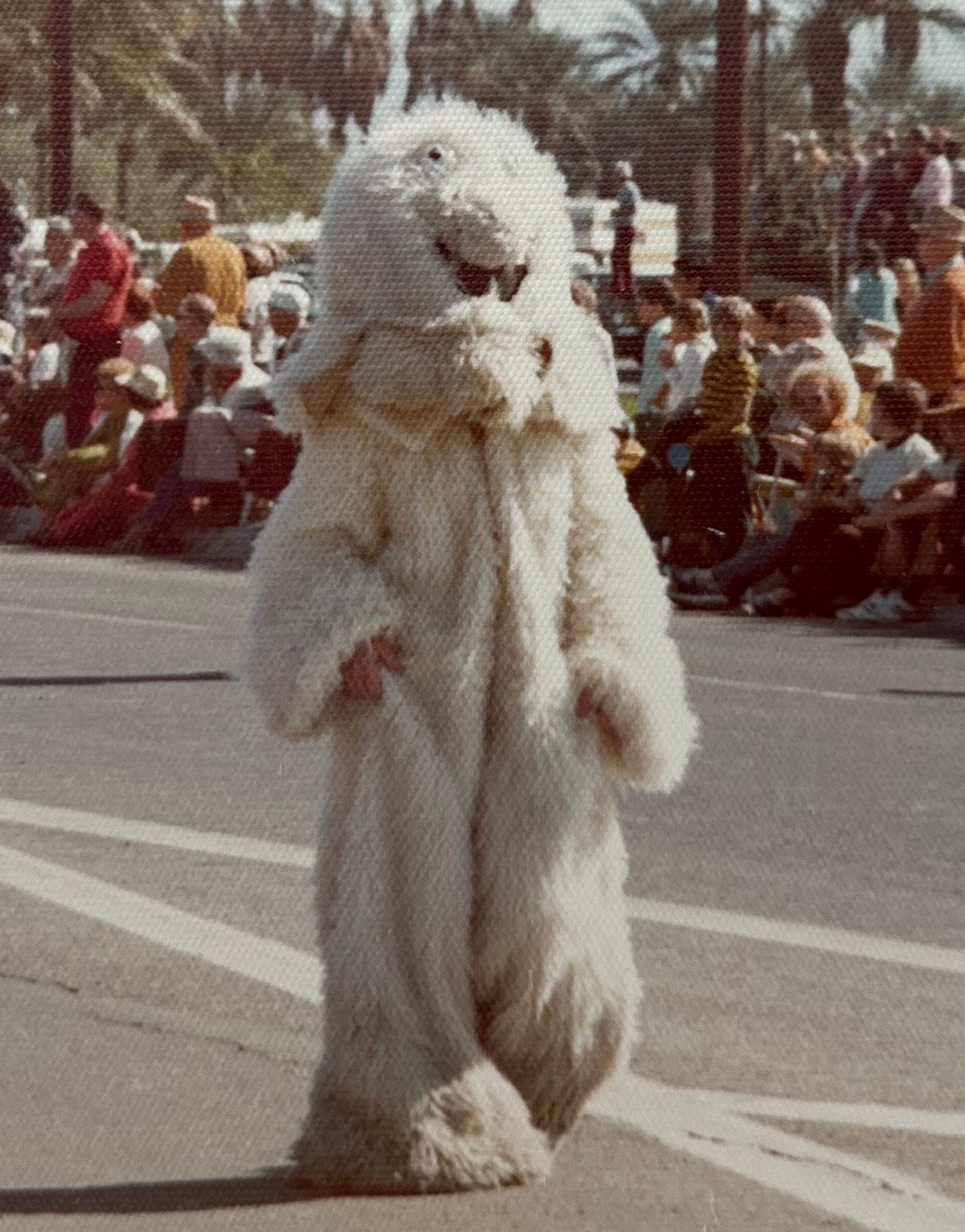Let’s talk about the characters in your stories. Well, the people in your life who end up as characters in your stories.
I think everyone who writes memoir or tells personal stories, consciously or not, develops their own code for talking about other people. Some storytellers don’t feel like they need to check anything with the people in their stories; some do intense levels of consent-getting and fact checking.
In my view, a lot of personal stories don’t actually need a ton of thought about this. Hopefully, your story is primarily about you. Your old college roommate won’t mind being a side character in a story about you trying to make mango rice and beans for your crush sophomore year. When that crush was very condescending about your cooking and you never made mango rice and beans again. (Just a fictional example.)
But if a story involves sensitive information about someone else, I do want to make sure I’m doing right by them. I’m not going to tell you what to do. But I’ll share my own rules with you, and you can see what you think.
Gossip is great, but not in a story.
I try to keep my story centered on me and my experience. I’ll tell you enough about someone else for my experience to make sense, but no more than that. And if a story is MOSTLY someone else’s personal details, it’s worth asking: is this my story, or theirs?
I “anonymize” people when I need to.
I haven’t always done this, but these days I frequently change names to protect a person’s privacy. I started doing it when I was telling stories about being a teacher and my former students kept asking me “Was that me in the story??” and I didn’t want them identified. If it doesn’t affect the story, and I really want to protect someone’s identity, I might also change one other thing about them, like hair color or even their job.

If I’m telling a sensitive story in public, and I’m in touch with the person involved, I’ll check with them first.
In fact, I usually tell them the parts that involve them, and ask if it sounds ok or if they want to change something. An example: I once told
a story about an ex-boyfriend for a Moth MainStage show— those are big theatre storytelling shows with a few thousand people in the audience.
My ex was very Christian (which I am not), and it was relevant to the story. So I called him up beforehand and asked him to weigh in on how I described his religious practices in the story, because I didn’t want to risk mischaracterizing or accidentally belittling them. We figured it out together and landed on “he had a daily conversation with God.” It was nice, and also a little weird, to work it out with him.
By the way, if I’m really not in touch with the person it’s about or I’m sharing the story in a very small venue like a workshop, I usually feel fine telling it without their say-so. But I’ll still anonymize them.
This all doesn’t mean that everyone involved has to “agree” with my story.
We all get to have our own memories and perspectives of what happened! This is why I change names! And when it comes to someone who has clearly abused power or done intentional harm, I certainly don’t need them to feel comfy with what I say. As Taylor Swift said: “If guys don’t want me writing bad songs about them, they shouldn’t do bad things.” Instead, in any story, even one with some really bad behavior, I’m just really careful never to assume someone’s internal state or intentions— only my experience of their behavior or what they said.
So in a story about my high school Geometry teacher, I wouldn’t say “And she really wanted to embarrass me, so she made me get up in front of the class and read the note.” Because I actually don’t know that she wanted to embarrass me. I only know that’s how it felt to me.
So instead I might say “I felt like she was just out to embarrass me. And she smirked at me while I headed to the front of the class.” It’s a tiny shift, but an important one. You’re talking about your experience, not “making a case,” so your listener can draw their own conclusions about how terrible/unfair/unprofessional your high school Geometry teacher was. (Again, fictional example.)
Final thought: whether you check with them or not, it’s worth being intentional about other people in your story one way or another, so you don’t accidentally hurt someone or yourself. Because ultimately, you have a lot of power by being the person telling the story. And with great power… you know.
What do you think? What are the exceptions, the sticky situations or the challenges with telling stories about other people? Comment or reply!
Respectfully and enthusiastically yours,
Micaela
Work With Me
If you’ve been with me for a while you know: you don’t have to have a Giant Story to tell, to have a story worth telling. So this fall, write your story!
I'm thrilled to be co-teaching WRITING MEMOIR: TELL YOUR STORY IN 8 WEEKS with the amazing Vanessa Zoltan at Not Sorry Productions. We'll meet for 8 Sundays online — you’ll plan in October, write like the wind in November, and by December 1 you’ll have a gloriously messy first draft of your memoir.
Challenge yourself, find your writing community, have a great time. You can find out all the details here (scroll down on the page for memoir info). I hope you’ll join us!




I wrote about my exBF and used his name and photo #NoRegrets. My story wasn't *really* about him, it was about how I connected with several of his other exes and learned about so many lies, and how my Sister Exes and I became friends. https://larastarr.substack.com/p/the-sister-ex-saga